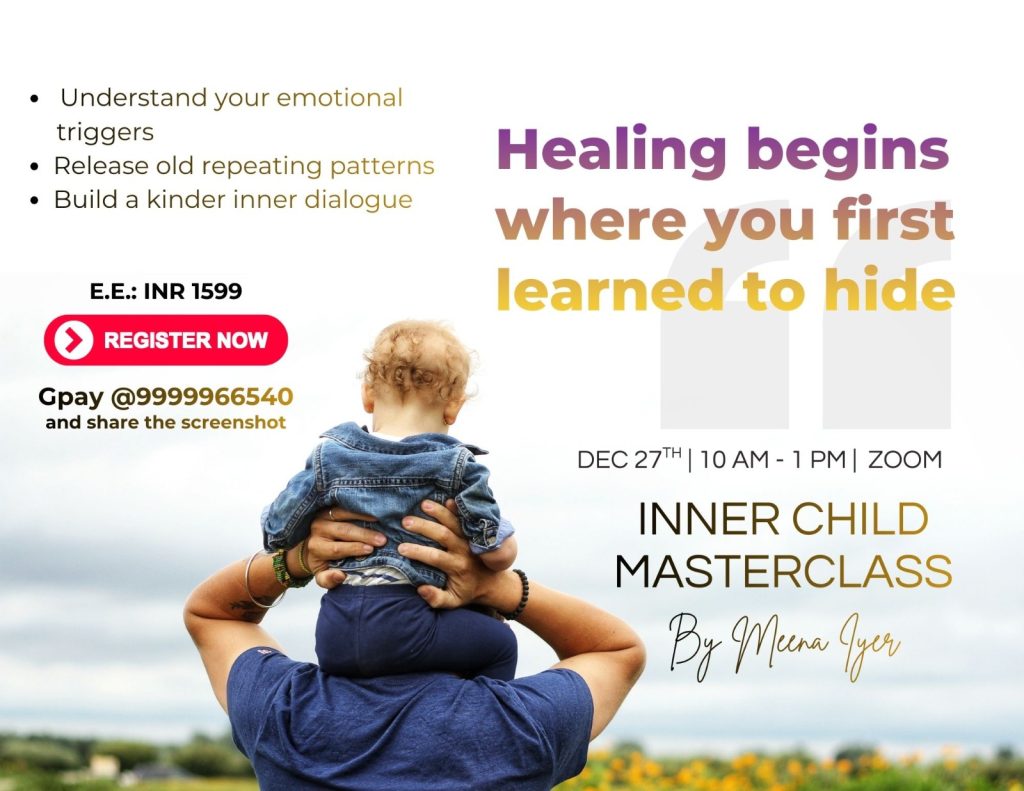Beyond “not enough” – The Journey to Self-Worth
I was talking to a friend who is also a therapist like me.
“I’ve been receiving all these invitations from business coaches to grow my work. They talk of newbie therapists signing up new clients every week at three times what I charge for a session. I feel strangely inadequate when I see all this.”
Here is someone who has been working steadily for almost a decade and she suddenly felt a disconnect.
Does it happen to you?
Do you question yourself when you see other people’s claims about the volume of work they do or how much money they make?
It could be in any other area of your life too – your health, relationships, hobbies, lifestyle or even your spiritual path.
Could it be that your self worth feels challenged?
Let’s dive in.
What Does Self-Worth Look Like?
While self-worth manifests uniquely in each person, some common signs indicate a healthy sense of self-esteem. When you truly value yourself, you tend to:
- Treating yourself with kindness and compassion rather than self-criticism or harsh judgment.
- Setting boundaries that protect your emotional and physical well-being.
- Trusting your instincts and making decisions confidently.
- Accepting compliments gracefully without dismissing or minimizing them.
- Taking responsibility for your actions but not overly blaming yourself for mistakes.
- Prioritizing your needs without feeling guilty.
- Staying resilient in the face of setbacks or criticism, knowing your worth isn’t defined by external opinions.
- Feeling comfortable in your body.
- Feel safe expressing emotions in a healthy way that is respectful to yourself.
- Having adequate energy to accomplish your tasks, exercise and sleep restfully.
All the above reflect an internal belief: You are worthy of love, respect, and happiness simply because you are you.
Understanding Self-Worth
Self-worth is the deep, unwavering conviction that your life has value beyond external achievements or other people’s opinions. It’s a core part of your identity that influences how you see yourself and how you relate to the world around you.
When your self-worth is strong, you’re more likely to pursue passions, take risks, and weather life’s storms with resilience. Conversely, when your self-worth is fragile, you may struggle with self-doubt, perfectionism, or dependency on external validation.
Working on Cultivating Self-Worth
- Practice Self-Compassion
Treat yourself as you would a good friend. When you’re feeling down or make mistakes, speak kindly to yourself instead of resorting to harsh judgment. - Celebrate Your Strengths
Create a “self-love” list of your qualities, talents, and accomplishments. Reminding yourself of these positives reinforces your belief in your worth. - Surround Yourself with Positivity
Seek relationships and environments that uplift and support you. Distance yourself from toxic influences that diminish your confidence. - Set Healthy Boundaries
Learn to say no to things that don’t serve you or compromise your integrity. Respecting your limits affirms your self-value. - Engage in Self-Discovery
Spend time exploring what genuinely matters to you. Pursuing passions and aligning your actions with your core values boosts self-esteem. - Practice Gratitude
Focus on what you appreciate about yourself and your life. Gratitude shifts your mindset from scarcity to abundance. - Let Go of Comparisons
Remember that everyone’s journey is unique. Comparing yourself to others diminishes your self-worth; instead, celebrate your individuality.
When you have a self-worth wound
When you have been hurt in a way that makes you question your self worth, this can be stored as a memory or even as an energetic block in your body. Such a wound may result from blame, criticism and shaming in childhood or adolescence. When you are unaware of this, you feel perplexed when you react in ways that you question. This can look like –
Why do I get mad when someone talks about their achievements in a particular area of their life?
Why am I unnatural talking about my own achievements either hyping them up or playing them down?
Time to ask, is there a forgotten (subconscious) self worth wound.
Your Worth Is Not Conditional
Your value isn’t based on external factors—wealth, appearance, status, or achievements. It’s an inherent part of who you are. Embracing this truth allows you to move through life with confidence and authenticity.
In Conclusion
Self-worth isn’t a destination; it’s a lifelong journey of self-acceptance and growth. By nurturing your self-esteem each day, you create a foundation that supports a happier, more fulfilling life. Be gentle with yourself along the way, and remember: you are worthy just as you are.
The Inner Child Healing Masterclass
Saturday 27th Dec 10 am to 1 pm IST
Call : 9999966540 to register and receive Zoom link.
Meena Iyer
Psychologist, NLP Master Practitioner, Inner Child Healer, Sobriety Coach, Breathwork Facilitator.
https://www.meenaiyer.in/

Leave a Reply